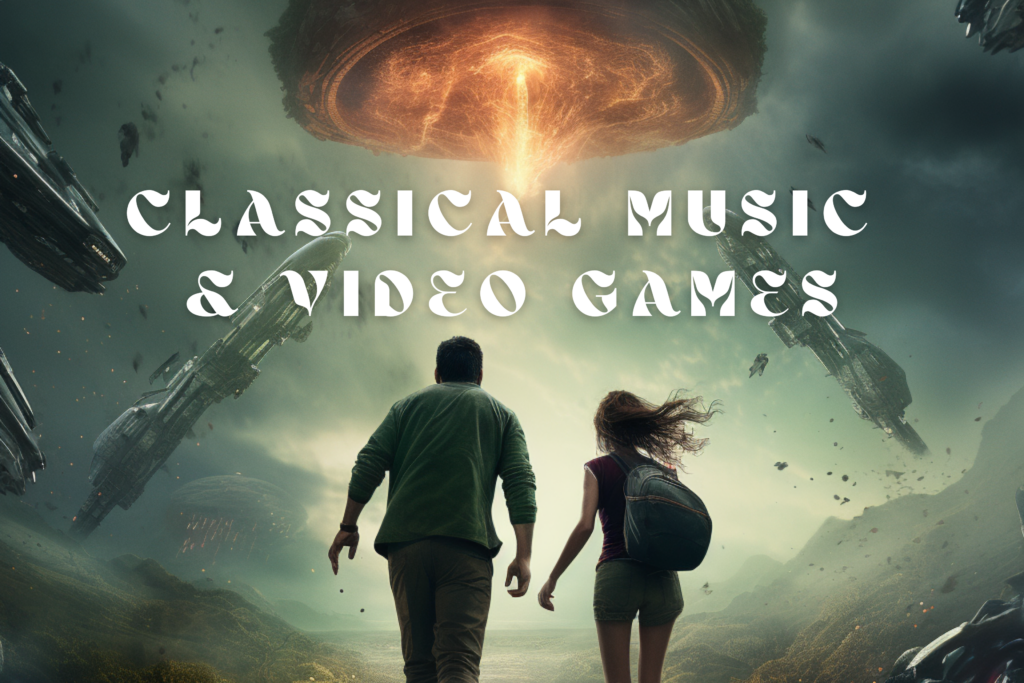Uncategorized
Classical Music in Video Games: Breeding The New Generations
Classical Music in Video Games: Breeding The New Generations
The Melodic Revolution in Gaming
In an era where video games are often associated with electronic beats and adrenaline-pumping soundtracks, the incorporation of classical music elements in titles like ‘Starfield’ is nothing short of revolutionary. This trend is not just a stylistic choice; it’s creating a new avenue for the appreciation of classical music, potentially breeding a new generation of aficionados. But what does this mean for the classical music community, and how is it changing the way we experience video games?
The Artistic Melting Pot
The world of video games has always been a melting pot of artistic elements, from stunning visuals to compelling storylines. But it’s the music that often sets the tone, creating an immersive experience for the player. While electronic and rock genres have traditionally dominated this space, the inclusion of classical music is a game-changer—quite literally. Games like ‘Starfield’ are incorporating classical compositions into their soundtracks, offering players a different kind of auditory experience. This not only elevates the gaming experience but also exposes a younger audience to a genre they might not have explored otherwise.
Breaking Stereotypes
When we think of classical music, we often picture grand concert halls and a more mature audience. However, its integration into video games is breaking down these stereotypes. Young gamers are now experiencing the emotional depth and complexity of classical compositions as they navigate virtual worlds. This exposure is doing more than just enhancing gameplay; it’s cultivating an appreciation for classical music among a demographic that has traditionally been hard to reach.
Best Video Games Classical Music Soundtracks
Let’s delve into some examples that showcase the incorporation of classical music in video games:
Machinarium
The game features a soundtrack that leans heavily on classical elements, blending them seamlessly with electronic music to create a unique auditory experience.
Final Fantasy Series
Known for its epic storylines, the series also boasts soundtracks that include adaptations of classical pieces, adding gravitas to the gaming experience.
The Elder Scrolls V: Skyrim
The game’s soundtrack includes orchestral arrangements that are reminiscent of classical compositions, enhancing the game’s mythical atmosphere.
Educational Implications
What does this mean for educators and musicians in the classical community? The implications are vast and incredibly exciting. Music teachers could leverage this trend to make classical music more relatable to younger students. Imagine a music class where students analyze the use of Beethoven’s Symphony No. 7 in a pivotal game scene. This approach could revolutionize music education, making it more interactive and relevant for the digital generation.
The Future Landscape
As we look to the future, the synergy between classical music and video games offers endless possibilities. Could we see collaborations between game developers and classical musicians? Might there be video games centered entirely around classical compositions, where the music itself drives the gameplay? These are not far-fetched ideas; they’re potential realities that could reshape the cultural landscape.
The Debate: Artistic Value vs. Commercialization
However, this trend also raises questions about the commercialization of classical music. Does its use in video games dilute its artistic value, or does it open doors for broader appreciation and understanding? This is a debate that will likely continue as the trend gains momentum.
In Conclusion
The incorporation of classical music into video games is a groundbreaking development that has the potential to redefine both industries. It offers a fresh perspective on how we experience and appreciate classical music, breaking down barriers and reaching new audiences. As we navigate this exciting new frontier, the challenge will be to maintain the artistic integrity of classical music while embracing the opportunities for innovation and outreach.
So, what are your thoughts on classical music’s growing presence in the video game industry? Is it a harmonious blend of old and new, or does it risk compromising the sanctity of this timeless art form? We invite you to share your insights and join the conversation.

